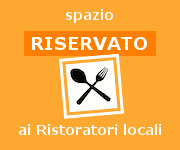Products
Traditional Agriculture
Agriculture is particularly present in the southern hilly areas, in
contrast with the northern territories which are now mainly covered
with woods (broad-leaf trees with conifers - Scots pine, which are
continuously recovering) and where a protected horticulture is taking
root in the residual cultivated areas; vineyards draw the sunniest
slopes with clear geometrical shapes. The meadows dominated by willow,
mulberry, and alder rows interrupt the woods in the valleys along the
streams; the peach orchards, which are still very widespread, at the
beginning of the century were so important to the extent that they
ensured the birth of a daily market in Canale d'Alba. Anyway, the most
significant cultivation is represented by the vineyard: since ancient
times, the sunniest hilly slopes have been stolen to the wood to plant
vineyards. The most important wines are Roero (D.O.C. since 1985),
Roero Arneis, Barbera d'Alba, Nebiolo d'Alba, Moscato d'Asti, Favorita,
Birbet (Brachetto), etc. Moreover, the so-called "Uva molle di
Montaldo" is characteristic of the area: it is a particularly prized grapes
for its long-conservation qualities. The apple cultivation in
Corneliano and Guarene is still relevant today and better than the pear
cultivation, although the latter boasts a similar ancient tradition
with an original and exclusive cultivar called "Madernassa". The
strawberry cultivation has been recently extended on loose and sandy
soils in the central areas of Roero, where the asparagus cultivation is
also a traditional activity.
The chestnut tree plays an essential
role, both for the economic relevance it had in the past and for the
landscape and historical value of the last nuclei of centuries-old
specimens: the area is mainly dominated by a fast-ripening local
variety called "Castagna della Madonna".





